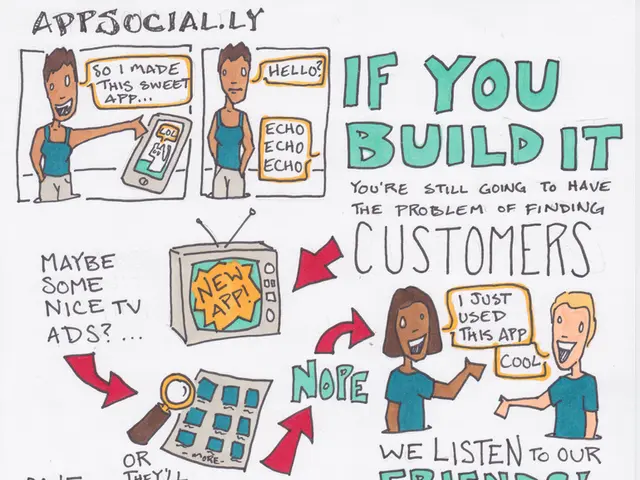Rapid Increase in AI Integration by 90% in the Video Game Sector, According to Google's Research
Artificial Intelligence Transforms Game Development, Brings Challenges for Developers
In the ever-evolving world of video game development, artificial intelligence (AI) is making a significant impact. According to a recent survey, as of mid-2025, approximately 90% of developers have integrated AI into their workflows, a trend that is rapidly growing [5].
AI is being leveraged for both development and gameplay, enabling dynamic and personalized content. One of the key advantages is cost reduction. AI significantly decreases development costs by automating procedural content generation (PCG) of assets, levels, and worlds, reducing the reliance on large manual art teams [1][3]. It also speeds up iteration cycles and testing by enabling automated bug detection and gameplay simulations, thus improving efficiency and reducing time-to-market [3]. For smaller studios, AI democratizes access to high-quality visuals and game environments with fewer resources, lowering barriers to entry [1][3].
AI applications are diverse. Procedural generation creates vast, unique, and dynamically changing game worlds, as seen in titles like No Man’s Sky and Minecraft [3]. AI-driven NPCs adapt in real-time to player behavior, enhancing immersion and replayability. This includes dynamic AI for NPC routines, enemy tactics, and even adaptive soundtracks tailored to gameplay styles [1][2]. AI also personalizes experiences by adjusting difficulty, storylines, and events to individual players, improving player retention, especially in mobile games [1].
However, the integration of AI is not without challenges. One of the main concerns is return on investment (ROI). While AI can reduce costs, uncertainty remains around quantifying ROI, as AI integration requires upfront investment in R&D and infrastructure [1][4]. AI-native games are still emerging, so the market impact and monetization models are evolving, making it hard for some studios to predict financial returns with confidence [1][4].
Legal concerns are another challenge. The growth of generative AI has raised complex legal challenges around copyright, especially in relation to AI-generated assets and content [2]. Developers and platforms are navigating an evolving legal landscape using contractual, technical, and compliance-oriented strategies to ensure transparency and manage risks [2]. Current legal frameworks struggle to keep pace with AI innovations, leading to uncertainty and the need for cautious legal policies in game development workflows [2].
Despite these challenges, AI is transforming game development by lowering costs and enabling more immersive, dynamic experiences. The survey results indicate a widespread adoption of AI in the video game industry. However, the exact nature of the AI-related payment issues that led to the Hollywood strike last year remains unclear [6]. The survey did not provide information on the concerns of the remaining 37% of developers regarding AI and its implications, nor did it specify how the costs associated with AI integration have impacted the overall budgets of game development projects [7].
As the industry continues to evolve, it will be interesting to see how developers navigate these challenges and how AI continues to shape the future of video game development.
Read also:
- Exploring Harry Potter's Lineage: Decoding the Enigma of His Half-Blood Ancestry
- Elon Musk Acquires 26,400 Megawatt Gas Turbines for Powering His AI Project, Overlooks Necessary Permits for Operation!
- U Power's strategic collaborator UNEX EV has inked a Letter of Intent with Didi Mobility to deploy UOTTA(TM) battery-swapping electric vehicles in Mexico.
- Global Gaming Company, LINEUP Games, Moves Into Extensive Global Web3 Multi-Platform Gaming Network







